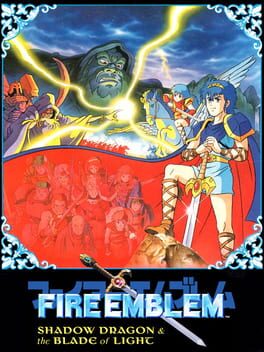When I originally played this game I thought it was a rather outdated prototype of one of my favourite series in gaming. Upon a revisit due to it's anniversary for the Switch, and during a drought in terms of series releases, I think it's important to compare this game contextually to it's peers. There's no skating around the fact that this game is just very clunky and barebones, lacking many basic QoL features one might assume a game of this genre might require. However the most important thing that this game manages to achieve is a solid foundation and a good grasp on fundamentals that blueprint the rest of the series from this game. This game has a basic understanding of how to make a map more than just a square with forest tiles littered around, which sounds really basic but if I were to compare this game to the, even future games of the genre, and games I attempted to fill the hole left by the current Fire Emblem drought, I would find that this game achieves better fundamentals than the likes of Shining, Langrisser, Brigandine, Super Robot Wars etc. in just how it recognises that a limited palette of verbs meshes well with the basic but successful map design the game employs.
The actions are simple but it still required a decent degree of strategy, the fact that there are so few actions you can take, combined with the absolutely lopsided balance of everything in the game results in a better experience than a game of it's primitive nature may suggest, its not high art in terms of SRPGS/TRPGS but it manages a decently enjoyable swords and sorcery setting, and an overlarge roster of characters with distinguishable enough characteristics to enable a mechanical attachment to them. This game is honestly worth your time if you're a fan of the series, it establishes conventions and ideas that are still felt to this day meaningfully, while still being a decent game in it's own right.
The actions are simple but it still required a decent degree of strategy, the fact that there are so few actions you can take, combined with the absolutely lopsided balance of everything in the game results in a better experience than a game of it's primitive nature may suggest, its not high art in terms of SRPGS/TRPGS but it manages a decently enjoyable swords and sorcery setting, and an overlarge roster of characters with distinguishable enough characteristics to enable a mechanical attachment to them. This game is honestly worth your time if you're a fan of the series, it establishes conventions and ideas that are still felt to this day meaningfully, while still being a decent game in it's own right.
